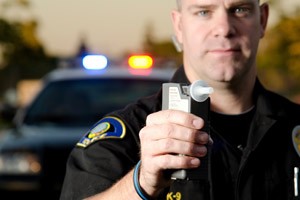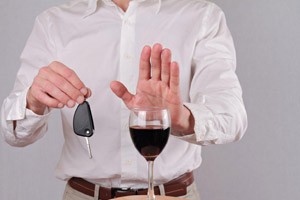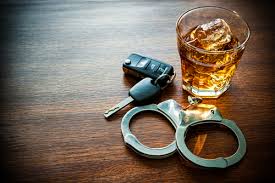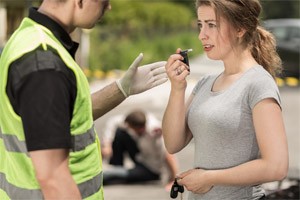 The law in New Jersey is different than 48 other states in that it treats a DWI/DUI as a motor vehicle offense instead of a criminal violation. As such, driving under the influence of drugs or alcohol is recorded on a driver’s Department of Motor Vehicle (DMV) records, aka a driver’s abstract.
The law in New Jersey is different than 48 other states in that it treats a DWI/DUI as a motor vehicle offense instead of a criminal violation. As such, driving under the influence of drugs or alcohol is recorded on a driver’s Department of Motor Vehicle (DMV) records, aka a driver’s abstract.
Moreover, in New Jersey, expungements are limited to only criminal offenses, and, since DUI/ DWIs in New Jersey are traffic offenses and not criminal offenses, a conviction for drunk driving can never be expunged from someone’s driving record. Only criminal arrests or convictions that fall under the 2C code can be expunged in New Jersey. However, this rule is not entirely negative. The rule does result in the benefit of the DWI/DUI not showing on an individual’s criminal history.
Note however, this doesn’t mean convicted offenders won’t face criminal penalties. The law considers driving under the influence as a pseudo-crime or quasi crime, and the consequences can be severe, including fines and loss of driving privileges. Prison time is also possible for a DWI/DUI, and it is mandatory when a driver commits a second or third offense. For example, by New Jersey law, third-time offenders are sentenced to a prison term of 180 days or more.
DWI/DUI and its Effect on Employment Applications
Since drunk driving is not considered a criminal offense under the New Jersey criminal code, drivers who have been convicted and are applying for jobs after their conviction do not have to answer, “yes,” if the employer asks if they have ever been convicted of a crime. Sometimes, however, employers may ask if a person has been convicted of anything but a minor traffic offense. DWI convictions are considered major traffic offenses, so in those cases, an applicant with a conviction for driving under the influence of alcohol or drugs should answer truthfully that they do have a history of more than just minor traffic offenses.
Many times, potential employers conduct background checks as part of their hiring process. Such background checks usually include an applicant’s driving record (which will show the drunk driving conviction), criminal record, court records and incarceration records. New Jersey does not report DUIs to the National Crime Information Center (NCIC) — a common criminal history database that employers check – so the DUI/DWI will not show on the NCIC check.
Exceptions – When You Must Disclose Your DWI/DUI Conviction to a Potential Employer or Other Reviewer
Title VII of the Civil Rights Act of 1964 prohibits employers across the United States from denying employment to individuals with a conviction unless they can prove a compelling business reason. Certain professions, like teachers, nurses, doctors and law enforcement officials, require disclosure as a condition of employment. There are other situations where a conviction must also disclosed, such as when a person is applying for a professional license – such as a law school graduate applying for admission to a state bar.
Notably, positions that require driving have obvious compelling business reasons to discriminate against DWI/DUI offenders. Therefore, someone with a DWI/DUI conviction who is applying for a position as a commercial truck driver, cab driver, delivery truck driver, etc. should disclose their prior DWI/DUI conviction.
For all these reasons, it is especially important to hire an experienced New Jersey DUI/DWI attorney if you have been arrested or charged with drunk driving in this state. Not only do penalties include the possibility of jail time, significant fines, and loss of driving privileges – a conviction for driving while intoxicated can also result in the loss of current of future job possibilities. An experienced lawyer can help you take advantage of certain laws that can lessen the penalties you must face or may be able to have the charges against you dismissed completely.
New Jersey Drunk Driving Attorney Edward M. Janzekovich Can Help Drivers Facing DUI Charges
The law regarding criminal history checks and expungements of DWI/DUI can be complicated and is different for everyone, depending on their situation. If you or someone you know is charged with drunk driving or driving under the influence in New Jersey, knowing what your rights are can make all the difference. To speak with an experienced New Jersey DWI lawyer about your situation, call us at 732-257-1137 or contact us online today. We serve clients in Ocean County, Monmouth County, Mercer County, Middlesex County, Union County and Somerset County.




 The consequences for getting a convicted of driving under the influence of alcohol or drugs in the State of New Jersey are potentially devastating. Even a first offense can result in jail time, loss of license, fines, and the potential loss of your ability to work or provide for your family and loved ones. If you have already been convicted of one or more prior DWIs, any additional offense will result in much more devastating penalties: mandatory jail, loss of license, and other increased punishments compared to the first offense.
The consequences for getting a convicted of driving under the influence of alcohol or drugs in the State of New Jersey are potentially devastating. Even a first offense can result in jail time, loss of license, fines, and the potential loss of your ability to work or provide for your family and loved ones. If you have already been convicted of one or more prior DWIs, any additional offense will result in much more devastating penalties: mandatory jail, loss of license, and other increased punishments compared to the first offense.





